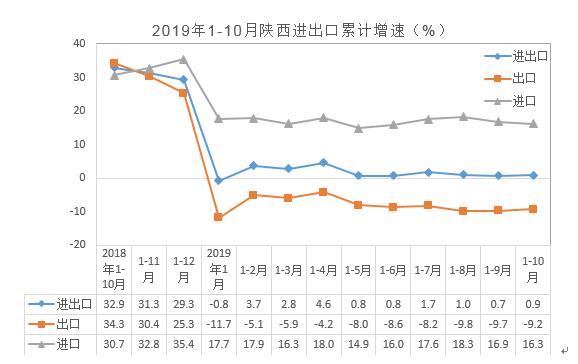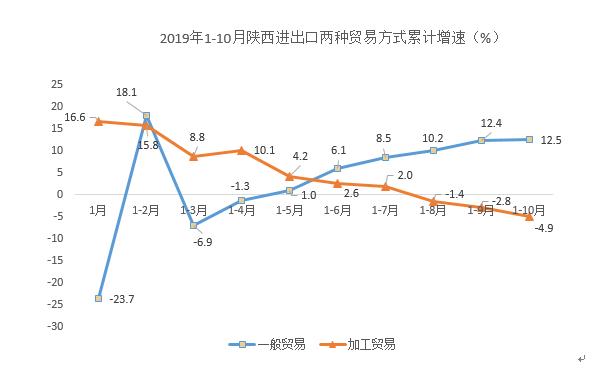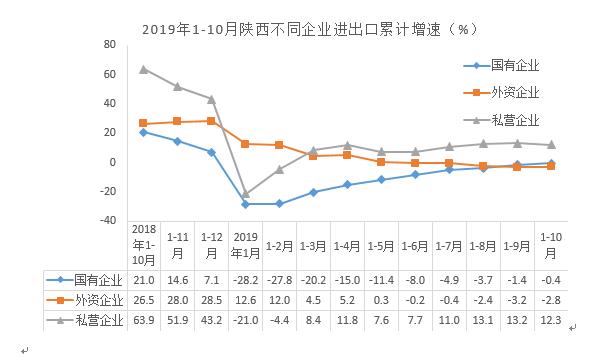"The way to benefit is to go with the times." To plan and promote the work of the party and the state, we must deeply analyze and accurately judge the current basic national conditions of our country. Scientific understanding of the new historical orientation of China’s development and adhering to the basic national conditions are the basis for the Party and the state to formulate the correct line, principles and policies, and the key to upholding and developing Socialism with Chinese characteristics.
In the report of the 19th National Congress of the Communist Party of China, the Supreme Leader clearly put forward the important political conclusion that "Socialism with Chinese characteristics has entered a new era" and that "the main contradiction in our society has been transformed into the contradiction between the people’s growing need for a better life and the unbalanced development", and at the same time stressed that "the basic national conditions of China, which is still in the primary stage of socialism for a long time, and its international status as the largest developing country in the world have not changed". These important expositions adhere to the methodology of dialectical materialism and historical materialism, point out the coordinates of the times in which the cause of the party and the state is developing, and provide fundamental follow-up for us to clearly understand the basic national conditions and grasp the new mission entrusted by the new era.
China’s development stands at a new historical starting point, and Socialism with Chinese characteristics has entered a new era and ushered in a bright future for the great rejuvenation of the Chinese nation.
Realizing the great rejuvenation of the Chinese nation is the greatest dream of the Chinese nation in modern times. In 1921, the Communist Party of China (CPC) stood out at the crucial moment of the survival of the Chinese nation, shouldered the historical mission of realizing the great rejuvenation of the Chinese nation without hesitation, United and led the people in arduous struggles, and wrote a magnificent epic that swallowed mountains and rivers. In the magnificent historical process of 1997, our party United and led the people to complete the new-democratic revolution, established the People’s Republic of China (PRC), and achieved a great leap from thousands of years of feudal autocracy to people’s democracy in China. Our party United and led the people to complete the socialist revolution, establish the basic socialist system and promote socialist construction, which laid a fundamental political premise and institutional foundation for all the development and progress of contemporary China, and realized the great leap of the Chinese nation from the continuous decline in modern times to the fundamental reversal of destiny and continued prosperity and strength; Our Party unites and leads the people to carry out the new great revolution of reform and opening up, which opens the way for Socialism with Chinese characteristics and makes China catch up with the times in great strides. Especially since the 18th National Congress of the Communist Party of China, with great political courage and strong responsibility, the CPC Central Committee with the Supreme Leader as the core has put forward a series of new ideas, new ideas and new strategies for governing the country, taking charge of great struggles, great projects, great undertakings and great dreams, promoting the overall layout of the "five in one" as a whole, coordinating and promoting the "four comprehensive" strategic layout, and solving many problems that have long been tried to solve but not solved.We have accomplished many great things that we wanted to do in the past, pushed China’s economic strength, scientific and technological strength, national defense strength and comprehensive national strength into the forefront of the world, and promoted China’s international status to an unprecedented level. The face of the party, the face of the country, the face of the people, the face of the army and the face of the Chinese nation have undergone unprecedented changes. Socialism with Chinese characteristics has entered a new era, and the Chinese nation is standing in the east of the world with a brand-new attitude.
Socialism with Chinese characteristics’s entry into a new era is a new milestone in the development of China, and it is also a new historical coordinate for us to fully understand and grasp China’s basic national conditions. Comrade Supreme Leader pointed out: "Socialism with Chinese characteristics’s entry into a new era means that the Chinese nation, which has suffered a lot in modern times, has ushered in a great leap from standing up, becoming rich and becoming strong, and has ushered in a bright prospect of realizing the great rejuvenation of the Chinese nation; It means that scientific socialism is full of vitality in China in the 21st century and holds high the great banner of Socialism with Chinese characteristics in the world. It means that Socialism with Chinese characteristics’s road, theory, system and culture are constantly developing, expanding the way for developing countries to move toward modernization, providing new choices for countries and nations in the world who want to accelerate their development and maintain their independence, and contributing to solving human problems. China wisdom and China program. " Here, with the "Three Represents", the Supreme Leader profoundly expounded the symbolic significance of Socialism with Chinese characteristics’s entry into a new era from the three dimensions of the Chinese nation, scientific socialism and human society. Socialism with Chinese characteristics’s entry into a new era is of great significance not only in the history of People’s Republic of China (PRC)’s development and that of the Chinese nation, but also in the history of world socialism and human society. We should strengthen our confidence and work hard to make Socialism with Chinese characteristics show more vitality.
In the new era, the main social contradictions have undergone profound changes, but the basic national conditions that China is still in the primary stage of socialism for a long time have not changed, and China’s international status as the largest developing country in the world has not changed.
Socialism with Chinese characteristics has entered a new era, which is not only the inevitable result of China’s social development and progress since the founding of New China, especially since the reform and opening up, but also because we already have a solid material foundation, indicating that China will become a powerful country from a big country; It is also the inevitable result of the main contradiction movement in our society, based on the new changes of the main contradiction in our society and the new mission entrusted to us by history. Comrade Supreme Leader pointed out in the report of the 19th National Congress of the Communist Party of China: "Socialism with Chinese characteristics has entered a new era, and the main contradiction in our society has been transformed into the contradiction between the people’s growing need for a better life and the unbalanced development." This new expression of the main social contradictions in our country profoundly reflects the stage changes and requirements of China’s development. Compared with the past, it has both significant changes and continuity, and is full of dialectics of "change" and "unchanged". Here, what "changes" is the main contradiction of our society in the new era, from "people’s growing material and cultural needs" to "people’s growing needs for a better life", from focusing on solving the problem of "backward social production" to focusing on solving the problem of "unbalanced and insufficient development"; What remains unchanged is that the primary stage of socialism is still our "greatest national condition"And "maximum reality". As Comrade Supreme Leader pointed out: "The changes in the main contradictions in our society have not changed our judgment on the historical stage of socialism in China. The basic national conditions that China is still in the primary stage of socialism for a long time have not changed, and China’s international status as the largest developing country in the world has not changed." This is because the change of the principal contradiction in our society is a phased qualitative change in the same direction, reflecting the new changes in our social production and social demand. Since the reform and opening up, China has steadily solved the problem of food and clothing for more than one billion people, achieved a well-off society on the whole, and will soon build a well-off society in an all-round way. People’s needs for a better life are increasingly extensive, which not only puts higher demands on material and cultural life, but also increases demands on democracy, rule of law, fairness, justice, security and environment. At the same time, the level of China’s social productive forces has improved significantly on the whole, and the social productive capacity has entered the forefront of the world in many aspects. The more prominent problem is the insufficient development imbalance, which has become the main constraint to meet the people’s growing needs for a better life. Actively adapting to the transformation of major social contradictions in China is an urgent need to speed up the transformation of development mode and solve the problem of insufficient development imbalance, and it is also an urgent need to conform to the trend of the times and let people live a better life.
After the establishment of China’s socialist system, there has always been a problem of how to clearly understand the national conditions and correctly judge the historical position of our society. As a socialist society like China, which was born out of a semi-colonial and semi-feudal society and was established through the new-democratic revolution and socialist transformation, our party has been carrying out extremely difficult and fruitful exploration on how to understand and grasp its basic national conditions. After the Third Plenary Session of the Eleventh Central Committee of the Communist Party of China, on the basis of summing up the historical experience since the founding of New China and the new practical experience since the reform and opening up, our party made a scientific conclusion that China is still in the primary stage of socialism and will be in it for a long time. The primary stage of socialism includes two meanings: one is that our society is already a socialist society, and the other is that our socialist society is still in its primary stage. The former expounds the current social nature of our country, and we must adhere to socialism instead of leaving it; The latter expounds the development degree of China’s socialist society, especially the underdeveloped socialist stage. We must proceed from this reality, organically unify the nature of socialist society with its development degree, and fully understand the historical position of our society. Today, China’s economic strength and comprehensive national strength have been significantly enhanced, and it has become the second largest economy in the world, and in recent years it has become the biggest engine to stimulate world economic growth. However, China’s per capita GDP is still in the middle income stage, still far below the level of developed countries, and there are still obvious imbalances in development. From the perspective of regional development, some places are faster and some places are slower.The layout of productive forces is still unbalanced. From the development of various fields, there are not only productive forces that have reached or even led the world’s advanced level, but also a large number of traditional and relatively backward productive forces; There are both overcapacity and insufficient effective supply, especially in employment, education, medical care, housing and old-age care, and there are still many obvious "shortcomings" in the field of social civilization and ecological civilization construction. From the sharing of development achievements, there are also imbalances among different groups, and there are still many people in difficulty in society. Therefore, we must have a clear understanding of the basic national conditions that China is still in the primary stage of socialism and will be in it for a long time.
In the new era, we must proceed from the greatest reality of the primary stage of socialism, always adhere to the party’s basic theory, line and strategy, and unswervingly regard development as the party’s top priority in governing and rejuvenating the country.
In the report of the 19th National Congress of the Communist Party of China, the Supreme Leader stressed: "The whole party should firmly grasp the basic national conditions of the primary stage of socialism, firmly base itself on the greatest reality of the primary stage of socialism, firmly adhere to the party’s basic line, the lifeline of the party and the country, and the happiness line of the people, lead and unite the people of all ethnic groups throughout the country, focus on economic construction, adhere to the four cardinal principles, persist in reform and opening up, self-reliance, and work hard to build China into a prosperous, strong, democratic, civilized, harmonious and beautiful socialist modern power." This important exposition has pointed out the direction for us to win the victory in building a well-off society in an all-round way and win the great victory of Socialism with Chinese characteristics in the new era.
In the primary stage of socialism, development is still the key to solve all problems in our country. "If you know what it is and don’t spend time, you will lose." Development is a constantly changing process, and the development environment will not remain the same. In the new era, our Party has made a historic leap in its understanding of the regularity of development, formed a people-centered development thought, put forward new development concepts of innovation, coordination, green, openness and sharing, defined the overall layout of "five in one" and the strategic layout of "four comprehensive", and established the strategic arrangement for Socialism with Chinese characteristics’s development in the new era. Especially with the changes of the main social contradictions in our country, new requirements have been put forward for the task of development. China’s development is still in an important period of strategic opportunities that can make great achievements, but the connotation of the important period of strategic opportunities has undergone profound changes, and it is changing from an opportunity to accelerate the development speed to an opportunity to accelerate the transformation of economic development mode, and from an opportunity to expand rapidly to an opportunity to improve the quality and efficiency of development. Therefore, entering the decisive stage of building a well-off society in an all-round way is not a new round of hard work, and it is impossible to achieve "two doubles" by extensive development mode and strong stimulation, otherwise it will inevitably go to the old road, which will bring new contradictions and problems. Only by accurately grasping the profound changes in the connotation of the period of strategic opportunities and consciously leading new practices with new development concepts can we fully grasp opportunities and calmly respond to challenges.Constantly create a new situation of economic development.
Facing the transition of China’s economy from a high-speed growth stage to a high-quality development stage, building a modern economic system is the strategic goal of China’s development. It is necessary to consolidate the real economy, deepen the structural reform of the supply side, strengthen the drive of innovation, promote the coordinated development of urban and rural areas, and optimize the spatial layout of the modern economic system. We should do a good job in the construction of ecological civilization, make the sky bluer, the land greener and the water clearer, and the beautiful towns and beautiful countryside complement each other, and the beautiful mountains and rivers and beautiful human settlements are organically integrated. It is necessary to strengthen the driving force of reform and form a new development pattern of industrial structure optimization, vigorous innovation, coordinated regional layout, integration of urban and rural development, beautiful ecological environment and happy people’s lives. We should firmly establish the people-centered development idea, conform to the people’s yearning for a better life, consciously achieve development for the people, development depends on the people, and development results are shared by the people. Focusing on safeguarding and improving people’s livelihood, we should develop various social undertakings, increase the adjustment of income distribution, strive to expand middle-income groups, win the tough battle against poverty, ensure people’s equal participation and equal development rights, and make the fruits of reform and development more fair to all people, so that people can gain a sense of happiness and security more fully.
The new era is the era of strugglers, and happiness is all achieved through struggle. Let’s unite more closely around the CPC Central Committee with the Supreme Leader as the core. Do not forget your initiative mind, keep in mind the mission, accurately grasp the changing characteristics of the primary stage of socialism in China, adhere to the Party’s basic line, persist in hard work before starting a business, and while continuing to promote economic development, better solve various problems in our society, better realize the all-round development of various undertakings, better develop the cause of Socialism with Chinese characteristics, better promote the all-round development of people and society, and ensure the realization of the Chinese dream of the great rejuvenation of the Chinese nation.
















